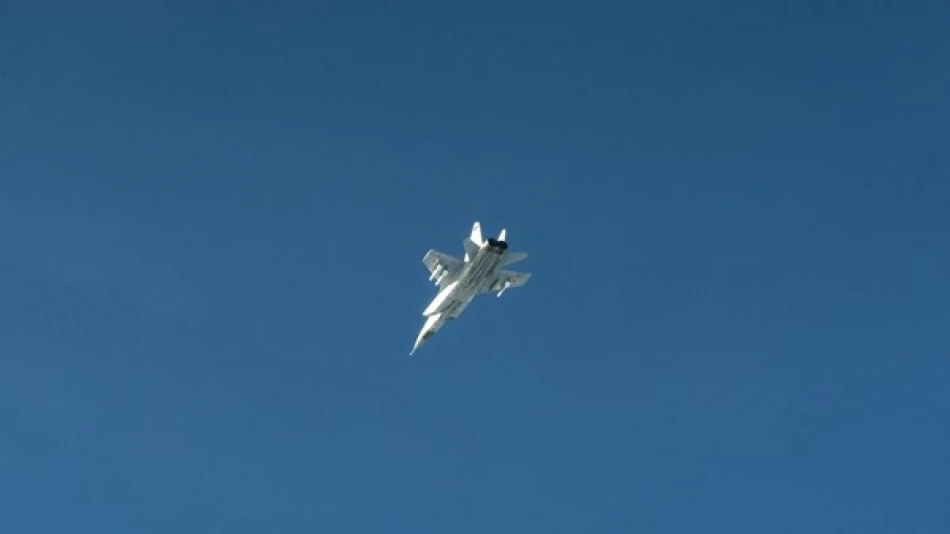
Trump Vows to Defend Poland and Baltic States, Reaffirms Commitment to NATO Alliance
Trump Promises Military Support as Baltic Tensions Escalate After Airspace Violations
President Donald Trump pledged Sunday to defend Poland and the Baltic states against potential military escalation, hours after three fighter jets violated Estonian airspace for 12 minutes over the Gulf of Finland. The incident marks another test of NATO's eastern flank and signals how quickly regional tensions can force the new administration's hand on European security commitments.
Swift Military Response Shows NATO Readiness
The airspace violation triggered immediate action from multiple NATO allies. Italy, which has overseen Baltic air policing since August, scrambled fighter jets alongside Swedish and Finnish aircraft to intercept the intruding planes over the Gulf of Finland.
This rapid response shows how NATO's rotational air policing mission works in practice. Since the Baltic states lack their own fighter aircraft, larger NATO members take turns protecting their skies. The system has been tested repeatedly over the past decade as regional tensions have grown.
Estonia Takes Issue to UN Security Council
Estonia's foreign ministry announced Sunday that it has requested an emergency UN Security Council meeting for Monday to address the violation. This move signals how seriously Baltic nations view these incidents and their willingness to use international forums to highlight security concerns.
The decision to involve the UN shows Estonia wants global attention on what it sees as a pattern of destabilizing behavior in the region.
Trump's Quick Commitment Contrasts with Past Hesitation
When reporters asked Trump directly whether the US would help defend these countries during any escalation, his response was immediate: "Yes I will, I will." He added from the White House that "we don't like this" regarding the airspace violations.
This quick commitment stands out given Trump's past questioning of NATO obligations during his first term. His immediate pledge suggests the new administration recognizes that Baltic security has become a key test of American credibility in Europe.
Pattern of Regional Provocations
The Estonian incident follows similar violations earlier this month when NATO jets shot down drones that breached Polish airspace. These repeated incidents create a pattern that keeps NATO forces on high alert and tests alliance response times.
For military planners, each violation provides intelligence on NATO's reaction speed and coordination between member states. The consistent quick response times likely serve as both deterrent and reassurance to eastern European allies who face the most direct security pressure.
What This Means for Regional Security
These incidents show how quickly local tensions can escalate into broader alliance commitments. Trump's immediate pledge of support suggests his administration understands that any perceived weakness in defending smaller NATO members could encourage further testing of alliance resolve.
The Baltic region's geography makes it particularly vulnerable, with limited land connections to other NATO members. This makes air policing missions and rapid response capabilities even more critical for maintaining regional stability.
Most Viewed News

 Layla Al Mansoori
Layla Al Mansoori






